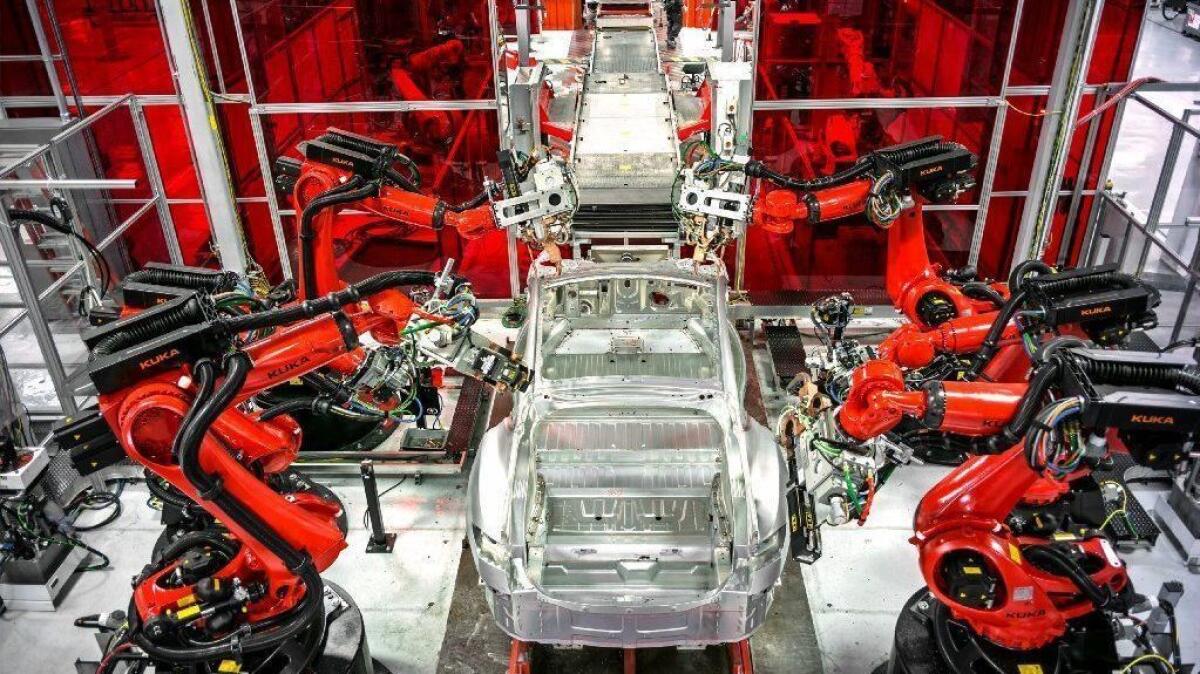Readers React: Why more automation in labor will make the world a bleak place for humans

- Share via
To the editor: We are in the midst of the fourth industrial revolution, in which artificial intelligence gives machines that learn the ability to replace human labor. While some have warned that the social dislocation of the first industrial revolution was small compared to what we face now, others have assured us, “Digital technologies have the potential to greatly increase productivity and growth.”
No mention is made as to who will profit from this increased productivity, since it seems self-evident that without any human labor, the owners of the technology will receive the windfall.
More importantly, what is the meaning of work to human beings? Work is more than a paycheck; it is a way for humans to exercise creativity and skill, to give back to the community, to connect with others in ways that diminish loneliness. Lack of paid work in parts of America has led to isolation, self-disparagement and despair.
Doris Isolini Nelson, Los Angeles
..
To the editor: The article did not even mention one possible reason that many companies are turning to automation: the effect of minimum wage and “living wage” laws as well as the various mandatory benefits (such as paid leave) that “progressives” have made part of the cost of unskilled labor.
Richard Showstack, Irvine
..
To the editor: If the banks would only give robots credit cards, and robots, like the ones Amazon plans to use to deliver packages, were paid a wage, we could have the perfect economy: robots buying things made by robots, delivered by robots.
No need for humans; we are undependable and generally a pretty bothersome lot.
Mike Peduzzi, Huntington Beach
Follow the Opinion section on Twitter @latimesopinion and Facebook
More to Read
A cure for the common opinion
Get thought-provoking perspectives with our weekly newsletter.
You may occasionally receive promotional content from the Los Angeles Times.









